 Technology peripherals
Technology peripherals
 AI
AI
 The first robot to autonomously complete human tasks appears, with five fingers that are flexible and fast, and large models support virtual space training
The first robot to autonomously complete human tasks appears, with five fingers that are flexible and fast, and large models support virtual space training
The first robot to autonomously complete human tasks appears, with five fingers that are flexible and fast, and large models support virtual space training
This week, Figure AI, a robotics company invested by OpenAI, Microsoft, Bezos, and NVIDIA, announced that it has received nearly $700 million in financing and plans to develop a humanoid robot that can walk independently within the next year. .
And Tesla’s Optimus Prime has also repeatedly received good news.
No one doubts that this year will be the year when humanoid robots explode.
Sanctuary AI, a Canadian-based robotics company, recently released a new humanoid robot, Phoenix.
Officially claims that it can complete many tasks autonomously at the same speed as humans.

The world’s first robot that can autonomously complete tasks at human speed
Pheonix can easily Gently grab, move and elegantly place each object to its left and right sides.
It can independently identify the color of objects and place objects of different colors separately. Its operation is smooth and efficient, and its speed is close to human level.
Time Magazine named Phoenix the best invention of 2023, which shows that the mainstream mass media recognizes them.
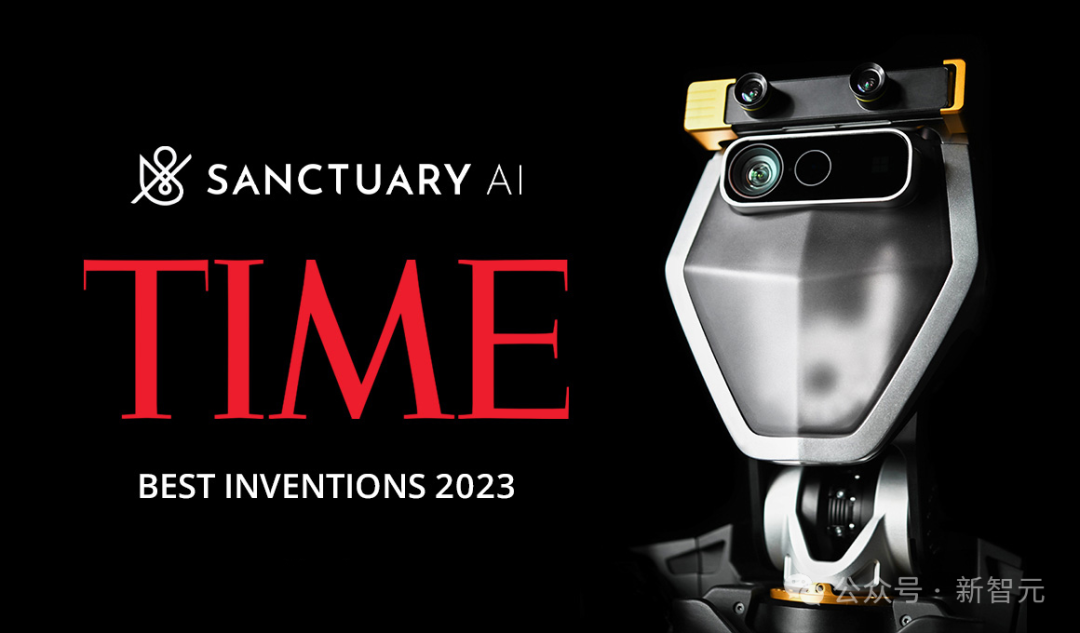
Phoenix is controlled by the advanced and unique artificial intelligence system Carbon. It is 1.7 meters tall and weighs 155 pounds. It has the industry's leading robot hand. , comparable to the dexterity and fine operation of the human hand.
Carbon integrates modern artificial intelligence technology to convert natural language into real-world actions. It has interpretable and reviewable reasoning capabilities and is responsible for planning tasks and motion plans, making Phoenix like People think and act the same way to complete work tasks.
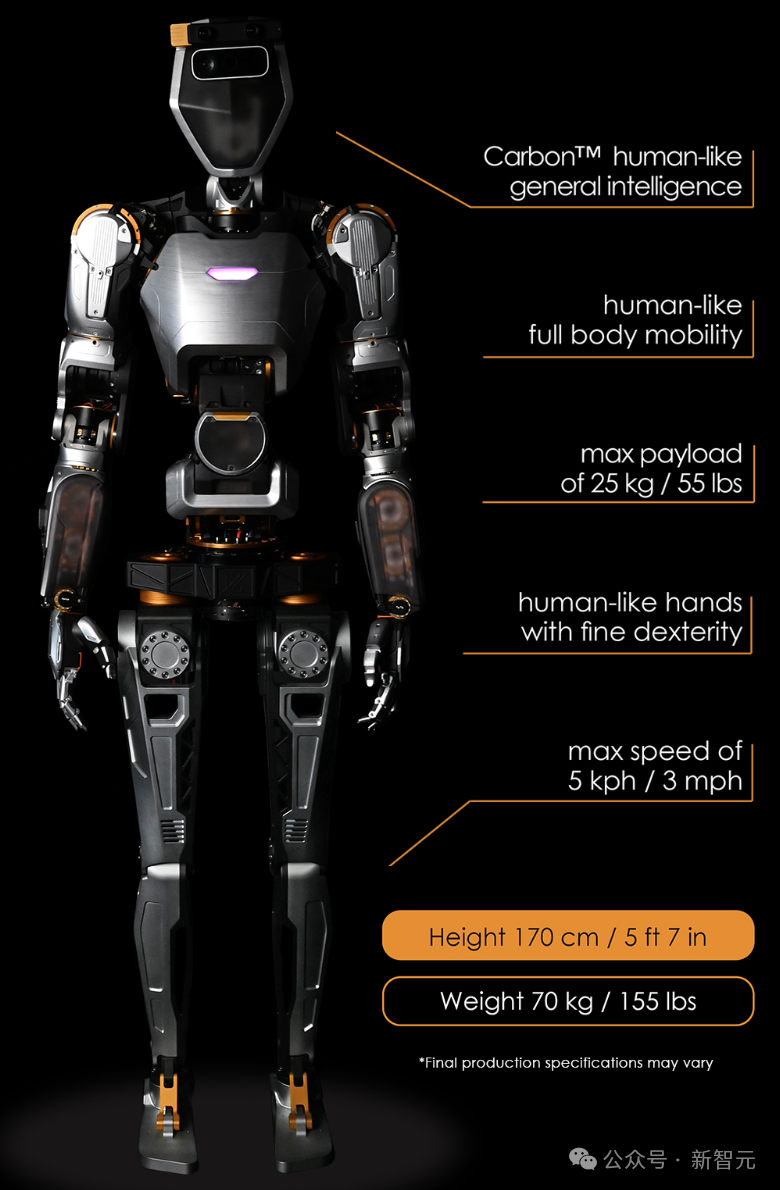
Its working load can reach 25 kilograms and can move at a speed of 5 kilometers per hour.
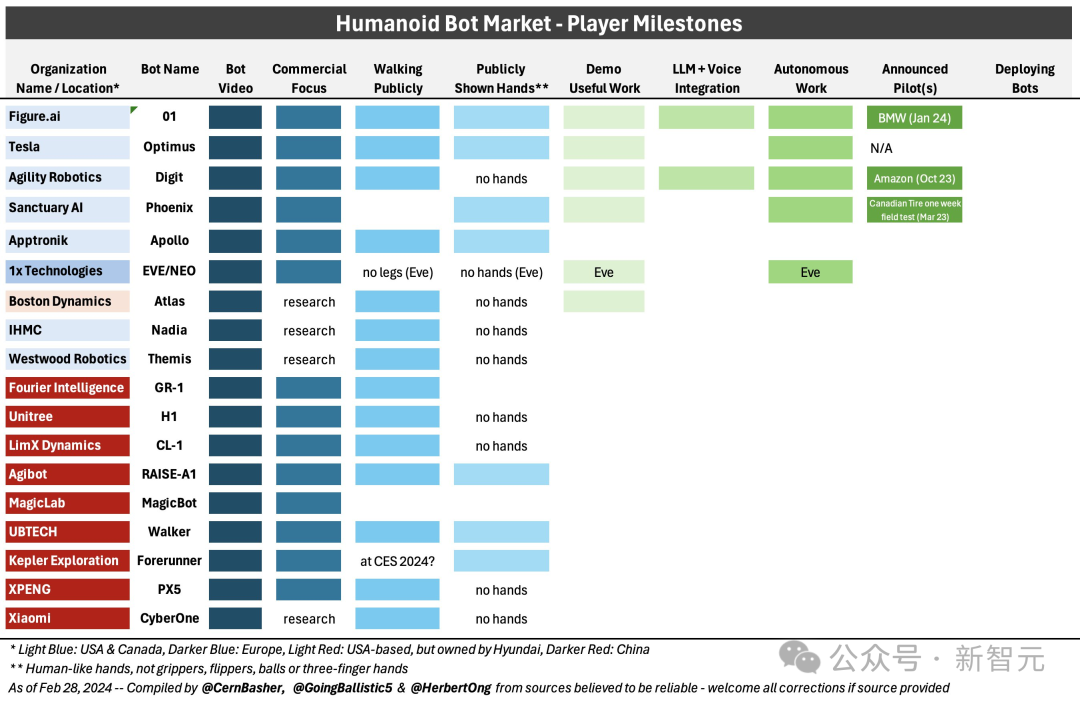
Some netizens made a table that counts the progress of the "evolution" of all robot company products towards humans. It can be seen that the top companies Already able to complete independent work tasks.
To complete precise work tasks, the main difficulty lies in hand flexibility and control technology.
According to Sanctuary AI’s demonstration, robots can now complete many simple tasks autonomously.

Check the test tube.
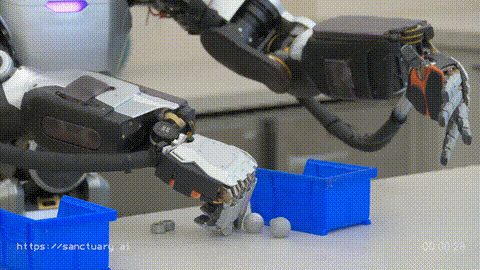
Classify screws and nuts.

Put the item into the bottle.
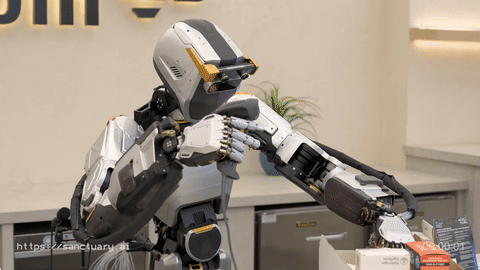
Scan the code to identify the item.

You can also complete the stacking game like humans.
Training method: autonomous learning from remote control data
Sanctuary AI trains Pheonix using remote control.
Staff use the VR system to manipulate the limbs, hands and fingers of the robot to complete various tasks.
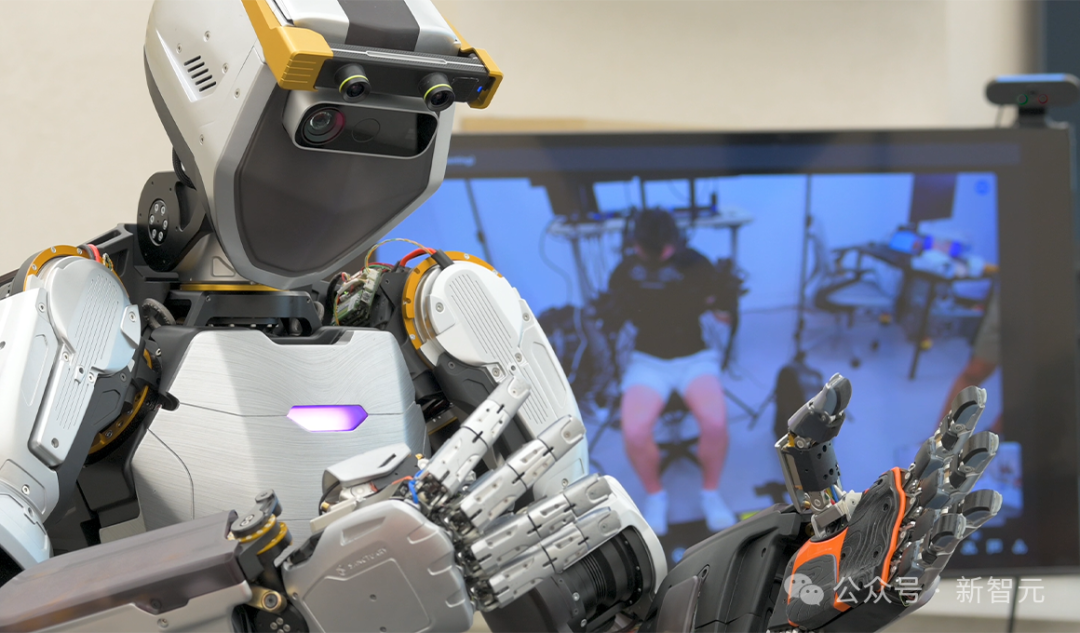
Then, the data during the operation is placed in a simulated system to train the robot.
In order to realize the movements after training, and at the same time make the robot's movements fast, powerful, and precise, they chose a hydraulic system to complete the control of the robot.
According to CTO Gildert, only the hydraulic system allows the robot to "do some very dexterous things, such as threading needles and buttoning buttons. You have to ask yourself, which hand It can also lift a 50-pound suitcase and type on a keyboard at human speed."
In March last year, they put the robot into a supermarket in Vancouver. Let it complete 110 retail-related tasks. This includes picking and packing merchandise, labeling, labeling, folding and cleaning the store.
Core founder of the company
CEO: Geordie Rose
He is a serial entrepreneur in the technology industry.
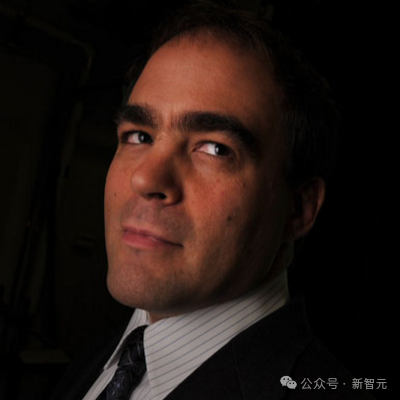
Before founding Sanctuary AI in 2018, he founded 2 high-tech companies:
Kindred.ai: The world’s first company building reinforcement learning robotics for use in production environments.
D-Wave Systems Inc.: The world’s first quantum computing company, with contributions to Google, NASA, Lockheed Martin, Gap Inc. and several U.S. governments Institutions sell quantum computers.
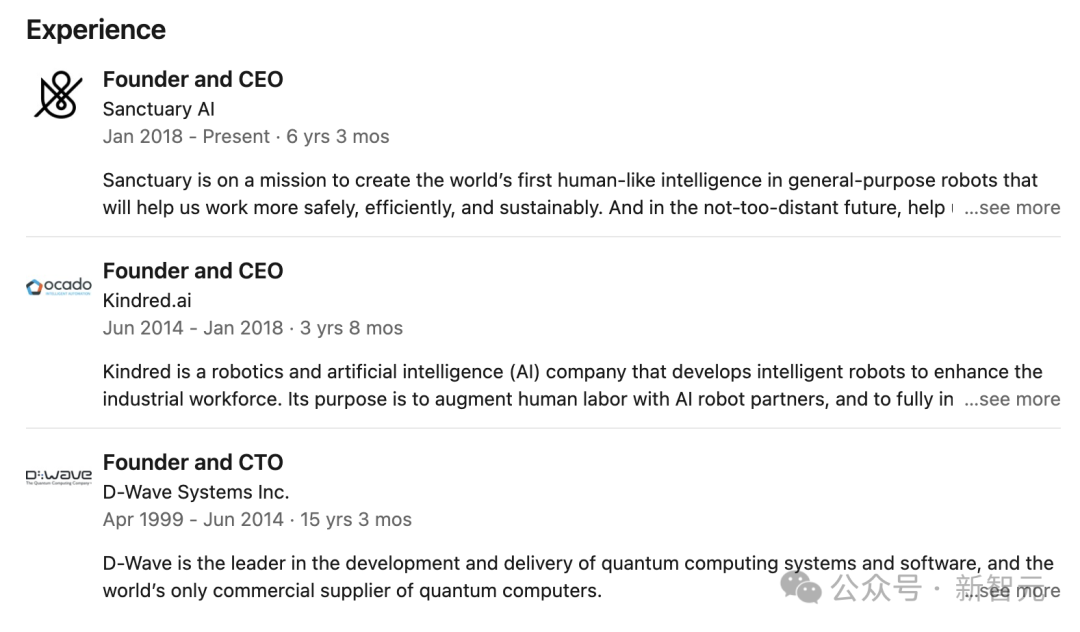
# He holds a PhD in theoretical physics from the University of British Columbia.

He is also a combat athlete, a two-time Canadian National Wrestling Champion, and a 2010 NAGA Master White Belt Brazilian Jiu-Jitsu World Championship Dodo and winner of the No Way category.
CTO: Suzanne Gildert
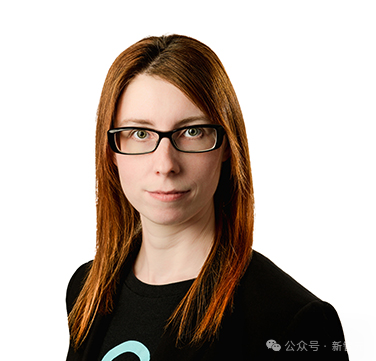
She was with the CEO before, at Both D-Wave and Kindred hold important positions.
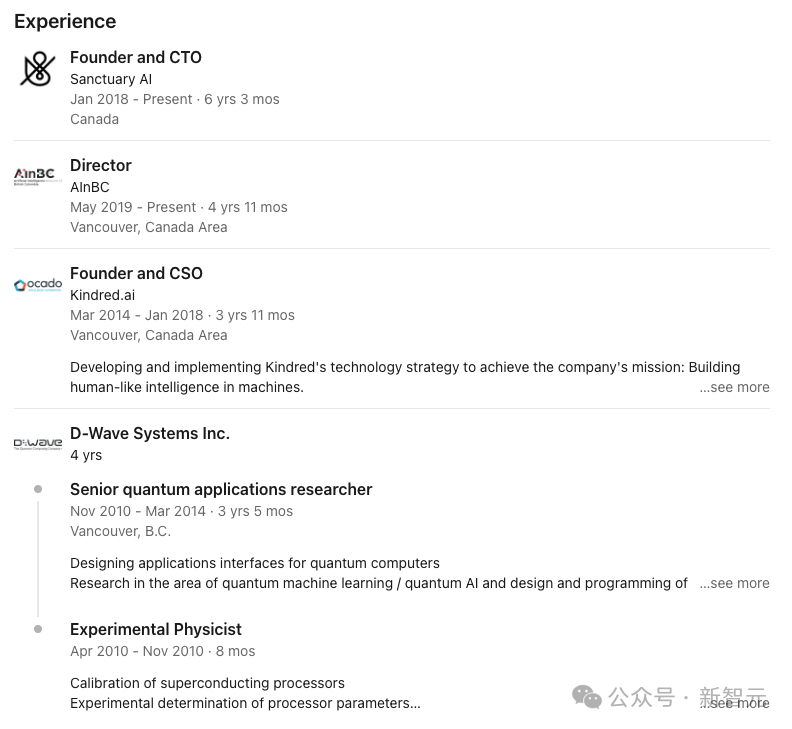
Prior to joining Sanctuary, Suzanne was the co-founder of Kindred AI. She oversees the design and engineering of the company's humanoid robots and is responsible for developing the cognitive architecture that enables the robots to understand themselves and their environment.
While at D-Wave, Suzanne developed MAXCAT – the world’s first game for quantum computers and developed the world’s first supervised classification to run on quantum computers machine and was the first to use a quantum computer to control the movement of a robot.
She graduated from the University of Birmingham, where her research direction was experimental quantum physics.
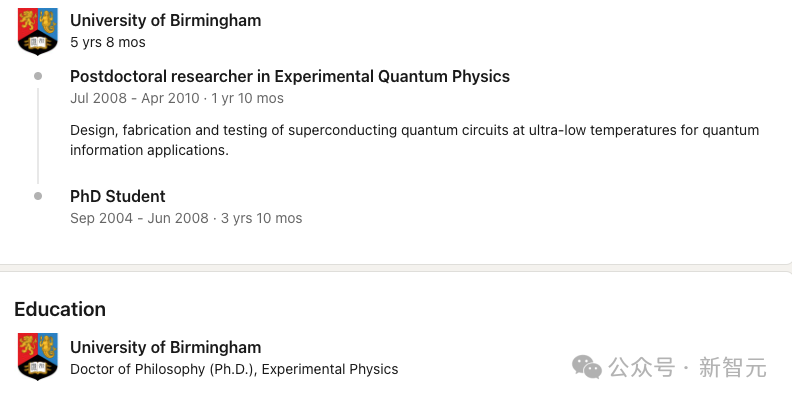
The two of them also regularly publish technology-related podcasts online, covering content ranging from corporate governance to specific technical details of the company. If you are interested in humanoid robots, don’t miss their exciting content.
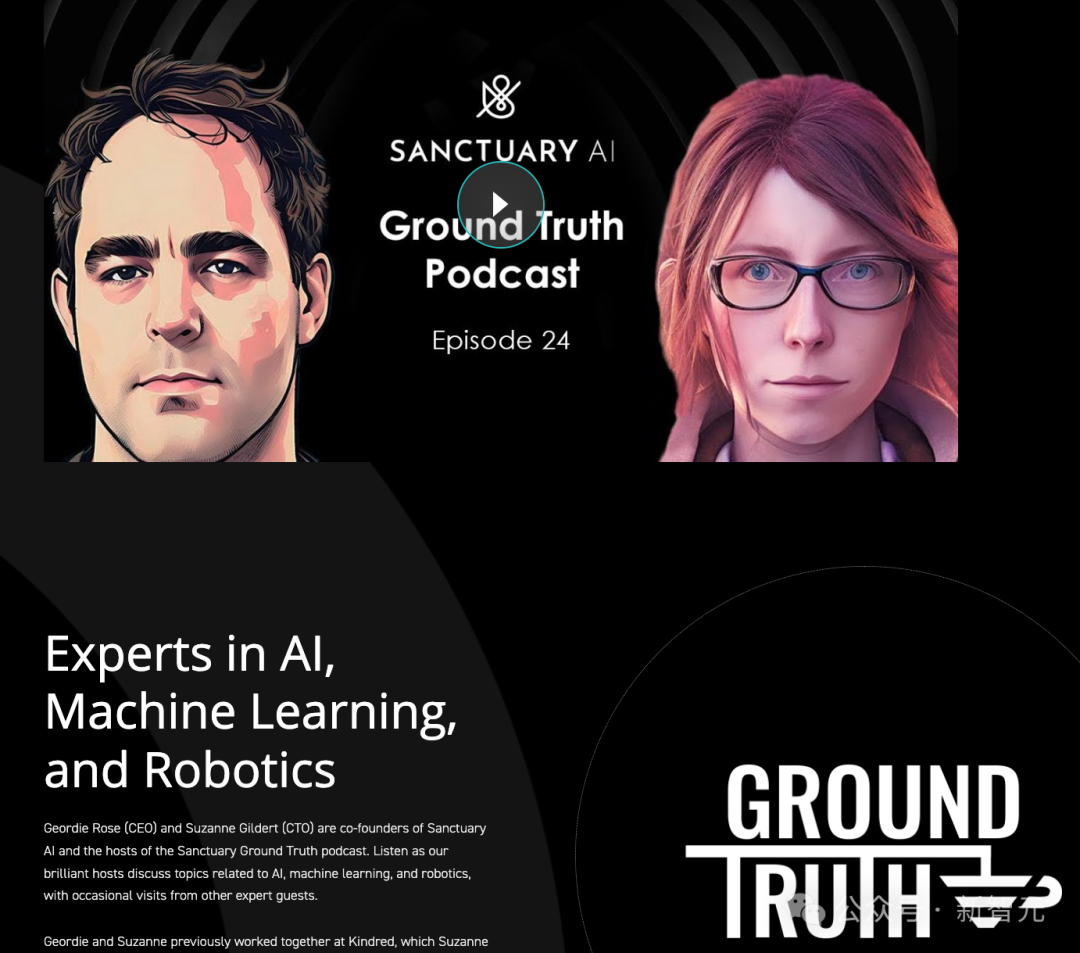
Podcast address: https://sanctuary.ai/podcast/
The above is the detailed content of The first robot to autonomously complete human tasks appears, with five fingers that are flexible and fast, and large models support virtual space training. For more information, please follow other related articles on the PHP Chinese website!

Hot AI Tools

Undresser.AI Undress
AI-powered app for creating realistic nude photos

AI Clothes Remover
Online AI tool for removing clothes from photos.

Undress AI Tool
Undress images for free

Clothoff.io
AI clothes remover

AI Hentai Generator
Generate AI Hentai for free.

Hot Article

Hot Tools

Notepad++7.3.1
Easy-to-use and free code editor

SublimeText3 Chinese version
Chinese version, very easy to use

Zend Studio 13.0.1
Powerful PHP integrated development environment

Dreamweaver CS6
Visual web development tools

SublimeText3 Mac version
God-level code editing software (SublimeText3)

Hot Topics
 1378
1378
 52
52
 Use ddrescue to recover data on Linux
Mar 20, 2024 pm 01:37 PM
Use ddrescue to recover data on Linux
Mar 20, 2024 pm 01:37 PM
DDREASE is a tool for recovering data from file or block devices such as hard drives, SSDs, RAM disks, CDs, DVDs and USB storage devices. It copies data from one block device to another, leaving corrupted data blocks behind and moving only good data blocks. ddreasue is a powerful recovery tool that is fully automated as it does not require any interference during recovery operations. Additionally, thanks to the ddasue map file, it can be stopped and resumed at any time. Other key features of DDREASE are as follows: It does not overwrite recovered data but fills the gaps in case of iterative recovery. However, it can be truncated if the tool is instructed to do so explicitly. Recover data from multiple files or blocks to a single
 Open source! Beyond ZoeDepth! DepthFM: Fast and accurate monocular depth estimation!
Apr 03, 2024 pm 12:04 PM
Open source! Beyond ZoeDepth! DepthFM: Fast and accurate monocular depth estimation!
Apr 03, 2024 pm 12:04 PM
0.What does this article do? We propose DepthFM: a versatile and fast state-of-the-art generative monocular depth estimation model. In addition to traditional depth estimation tasks, DepthFM also demonstrates state-of-the-art capabilities in downstream tasks such as depth inpainting. DepthFM is efficient and can synthesize depth maps within a few inference steps. Let’s read about this work together ~ 1. Paper information title: DepthFM: FastMonocularDepthEstimationwithFlowMatching Author: MingGui, JohannesS.Fischer, UlrichPrestel, PingchuanMa, Dmytr
 Google is ecstatic: JAX performance surpasses Pytorch and TensorFlow! It may become the fastest choice for GPU inference training
Apr 01, 2024 pm 07:46 PM
Google is ecstatic: JAX performance surpasses Pytorch and TensorFlow! It may become the fastest choice for GPU inference training
Apr 01, 2024 pm 07:46 PM
The performance of JAX, promoted by Google, has surpassed that of Pytorch and TensorFlow in recent benchmark tests, ranking first in 7 indicators. And the test was not done on the TPU with the best JAX performance. Although among developers, Pytorch is still more popular than Tensorflow. But in the future, perhaps more large models will be trained and run based on the JAX platform. Models Recently, the Keras team benchmarked three backends (TensorFlow, JAX, PyTorch) with the native PyTorch implementation and Keras2 with TensorFlow. First, they select a set of mainstream
 Slow Cellular Data Internet Speeds on iPhone: Fixes
May 03, 2024 pm 09:01 PM
Slow Cellular Data Internet Speeds on iPhone: Fixes
May 03, 2024 pm 09:01 PM
Facing lag, slow mobile data connection on iPhone? Typically, the strength of cellular internet on your phone depends on several factors such as region, cellular network type, roaming type, etc. There are some things you can do to get a faster, more reliable cellular Internet connection. Fix 1 – Force Restart iPhone Sometimes, force restarting your device just resets a lot of things, including the cellular connection. Step 1 – Just press the volume up key once and release. Next, press the Volume Down key and release it again. Step 2 – The next part of the process is to hold the button on the right side. Let the iPhone finish restarting. Enable cellular data and check network speed. Check again Fix 2 – Change data mode While 5G offers better network speeds, it works better when the signal is weaker
 The vitality of super intelligence awakens! But with the arrival of self-updating AI, mothers no longer have to worry about data bottlenecks
Apr 29, 2024 pm 06:55 PM
The vitality of super intelligence awakens! But with the arrival of self-updating AI, mothers no longer have to worry about data bottlenecks
Apr 29, 2024 pm 06:55 PM
I cry to death. The world is madly building big models. The data on the Internet is not enough. It is not enough at all. The training model looks like "The Hunger Games", and AI researchers around the world are worrying about how to feed these data voracious eaters. This problem is particularly prominent in multi-modal tasks. At a time when nothing could be done, a start-up team from the Department of Renmin University of China used its own new model to become the first in China to make "model-generated data feed itself" a reality. Moreover, it is a two-pronged approach on the understanding side and the generation side. Both sides can generate high-quality, multi-modal new data and provide data feedback to the model itself. What is a model? Awaker 1.0, a large multi-modal model that just appeared on the Zhongguancun Forum. Who is the team? Sophon engine. Founded by Gao Yizhao, a doctoral student at Renmin University’s Hillhouse School of Artificial Intelligence.
 How can AI make robots more autonomous and adaptable?
Jun 03, 2024 pm 07:18 PM
How can AI make robots more autonomous and adaptable?
Jun 03, 2024 pm 07:18 PM
In the field of industrial automation technology, there are two recent hot spots that are difficult to ignore: artificial intelligence (AI) and Nvidia. Don’t change the meaning of the original content, fine-tune the content, rewrite the content, don’t continue: “Not only that, the two are closely related, because Nvidia is expanding beyond just its original graphics processing units (GPUs). The technology extends to the field of digital twins and is closely connected to emerging AI technologies. "Recently, NVIDIA has reached cooperation with many industrial companies, including leading industrial automation companies such as Aveva, Rockwell Automation, Siemens and Schneider Electric, as well as Teradyne Robotics and its MiR and Universal Robots companies. Recently,Nvidiahascoll
 After 2 months, the humanoid robot Walker S can fold clothes
Apr 03, 2024 am 08:01 AM
After 2 months, the humanoid robot Walker S can fold clothes
Apr 03, 2024 am 08:01 AM
Editor of Machine Power Report: Wu Xin The domestic version of the humanoid robot + large model team completed the operation task of complex flexible materials such as folding clothes for the first time. With the unveiling of Figure01, which integrates OpenAI's multi-modal large model, the related progress of domestic peers has been attracting attention. Just yesterday, UBTECH, China's "number one humanoid robot stock", released the first demo of the humanoid robot WalkerS that is deeply integrated with Baidu Wenxin's large model, showing some interesting new features. Now, WalkerS, blessed by Baidu Wenxin’s large model capabilities, looks like this. Like Figure01, WalkerS does not move around, but stands behind a desk to complete a series of tasks. It can follow human commands and fold clothes
 The first robot to autonomously complete human tasks appears, with five fingers that are flexible and fast, and large models support virtual space training
Mar 11, 2024 pm 12:10 PM
The first robot to autonomously complete human tasks appears, with five fingers that are flexible and fast, and large models support virtual space training
Mar 11, 2024 pm 12:10 PM
This week, FigureAI, a robotics company invested by OpenAI, Microsoft, Bezos, and Nvidia, announced that it has received nearly $700 million in financing and plans to develop a humanoid robot that can walk independently within the next year. And Tesla’s Optimus Prime has repeatedly received good news. No one doubts that this year will be the year when humanoid robots explode. SanctuaryAI, a Canadian-based robotics company, recently released a new humanoid robot, Phoenix. Officials claim that it can complete many tasks autonomously at the same speed as humans. Pheonix, the world's first robot that can autonomously complete tasks at human speeds, can gently grab, move and elegantly place each object to its left and right sides. It can autonomously identify objects




